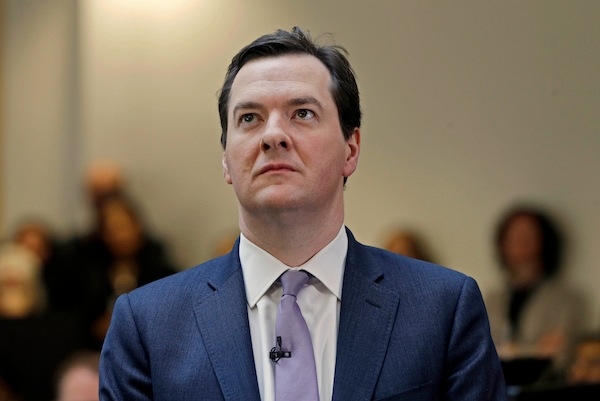It was only last week that a Tory MP was warning Coffee House of the dangerous impact that high levels of public debt can have on growth. Today that theory is fighting for its life, with the authors of the Harvard paper that developed it in the first place in the firing line for an error in a spreadsheet. If you haven’t been following the Reinhart and Rogoff row, here’s a quick catch-up: a paper from two professors and a doctoral student at the University of Massachusetts published this week argues that Carman Reinhart and Kenneth Rogoff of Harvard were wrong to reach the conclusion they did about a 90% debt to GDP ratio seriously affecting the growth of a country’s economy. Reinhart and Rogoff responded, acknowledging an error in their paper, but adding:
‘We do not, however, believe this regrettable slip affects in any significant way the central message of the paper or that in our subsequent work.’
The academics have penned a detailed response to the Massachusetts paper, which you can read here. But before this starts to sound a bit too technical, let’s remember that George Osborne himself cited the pair when explaining the need for deficit reduction. And to compound the pressure, last night the IMF’s chief economist Olivier Blanchard argued that there was more room for stimulus as his organisation cut the UK’s growth forecast by 0.3 per cent. So this sounds like good news for Osborne’s critics, along with today’s employment figures.
Pete Hoskin, formerly of this parish, has outlined some reasons why those critics might want to think twice before they get too excited about the IMF’s judgement, including that George Osborne has already demonstrated flexibility on his original plans by increasing capital spending. But the real political fallout won’t come from the IMF or a debate between two groups of academics, but from next week’s GDP figures, which will tell us whether the UK has slipped back into a triple-dip recession. It is over next Thursday’s release from the Office for National Statistics that the Chancellor’s enemies in opposition, in coalition, and in his own party are circling. And his allies have had this date circled in their diaries for weeks. For Labour, it means the party has renewed confidence about gliding into power in 2015 without having to make quite as many difficult public pronouncements as it would if the figures were good for the government. For Nick Clegg and Vince Cable, it means an opportunity to paint the Lib Dems as the party with better ideas, pushing more capital spending while continuing to back deficit reduction. And for Tory MPs with the leadership in their crosshairs, it means a chance to forget the Thatcher-induced unity of the past few weeks and start bickering again: this was, after all, one of the ‘key tests’ that backbenchers set a while back.
This is all hypothetical, of course, and as Coffee Housers well know, GDP figures are frequently revised in any case: it’s perfectly conceivable that next week’s figures could initially suggest a triple dip, but a later revision could show that either the second or third of those dips weren’t recessions at all. But those revisions naturally attract far less interest than the initial statistical release. And besides, voters need to feel that things are improving as much as they need to read about figures in the papers. The Treasury believes, meanwhile, that it has until the end of the summer. But if you’re looking for the vultures now, they’re circling over next week, not the economics stories of the past 24 hours.







Comments